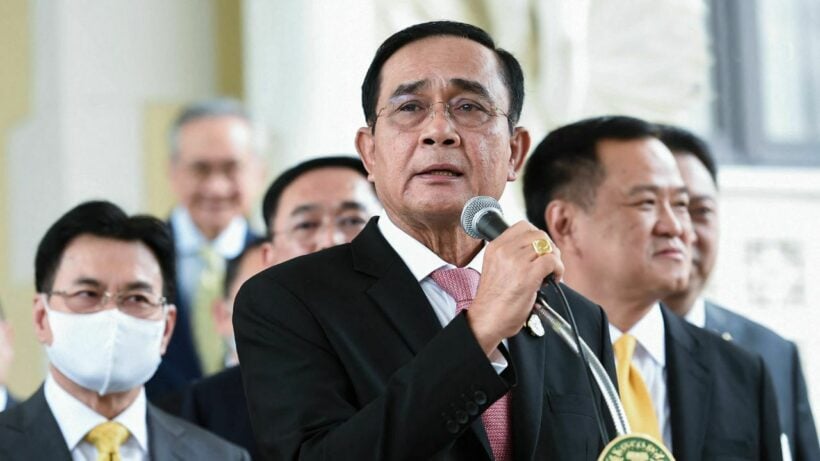Thai PM – “I will stay on as long as the law allows”

“I will stay on as long as the law allows. I am bound by the law, and cannot do anything at will.”
Words from Thailand’s PM, Prayut Chan-o-cha yesterday, vowing that he will only stay on in the top job whilst the law allows him too. He also reminded reporters that there are two organic laws regarding elections in Thailand that still need to clear Parliament, which could affect the outcome of the next general poll.
The first amendment relates to the number of ‘constituency’ MPs that would increased from the current 350 to 400. The number of ‘list’ MPs would drop from 150 to 100. But the total 500 MPs in the lower House of Parliament would remain the same.
The other change would see the former single ballot paper increased to two. There would be one for choosing a constituency MP, the second for electing list MPs.
The alleged ‘manipulation’ of list MPs, and their votes, after the 2019 election was roundly criticised by opposition MPs and parties.
Neither of these changes would directly affect the nomination of the prime minister, who, under he current constitution can be plucked from outside parliament if a single party fails to win a majority of votes in the lower house. This is how the former coup leader was able to be nominated for the PM position, despite not standing for election as an MP.
PM Prayut has been serving in the role of Thailand’s prime minister for nearly 8 years, although only 3 years (next month) under the current election rules.
In May 2014 General Prayut Chan-o-cha led the army in a bloodless coup to oust the elected government of Yingluck Shinawatra. The former PM now resides outside of Thailand, having fled in September 2017 after arrest warrants were issued following the Constitutional Court’s findings that Yingluck, and her government, were guilty over misappropriation of funds for a rice-pledging scheme.
The charges and arrests were widely viewed as political theatre to legitimise the Army’s 2014 coup.
In further remarks yesterday, the PM addressed criticism of parliamentarians who were avoiding sessions to vote on legislation. The lack of MPs meant that there wasn’t a quorum to continue with the meetings. Many MPs, mostly part of the ruling coalition, had been calling in sick because of Covid-19. The Thai PM was quoted by the Bangkok Post…
“No progress will be made if the sessions continue to collapse. If you want the election, you must pass the two organic laws, which in turn requires you to attend parliament sessions.”
The bills have been discussed in formal public and committee meetings and will now go to a lower house vote in the last week of February.
The Thai Parliament will have its next break at the end of February and then meet again in May for a 4 month session. If it runs its full course, the current government will ends its tenure in March next year when there will be the next general election.
In recent weeks the ruling Palang Pracharat party has been bleeding MPs with mass evictions and departures. The coalition, involving some 21 parties and independent MPs, now clings onto a wafer-thin majority (but can likely still rely on the votes of the MP’s no longer officially in the Palang Pracharat party).
After finding themselves without a party, the disgruntled MPs are now forming new, conservative, power bases to content the next election. Most have made public comments critical of the current PM and will be pushing other nominees as their preferred prime ministerial candidates in the lead up to the next election.
Former deputy PM Somkid Jatusripitak is being touted as a strong candidate to be the next Thai prime minister. He’d be championed by the newly-formed Sang Anakhot Thai Party (Building Thailand’s Future). Somkid was a co-founder of the progressive Thai Rak Thai party with Thaksin Shinawatra which contested and won three successive elections from 1998. He served with Prayut, firstly as an economic advisor for the NCPO (who led the coup), and then as a deputy PM up until 2020.
Also waiting in the wings is the mercurial public health minister Anutin Charnvirakul, who’s high profile roll in the government, particularly during the pandemic, has brought him to the attention of the Thai electorate.
Latest Thailand News
Follow The Thaiger on Google News:


























